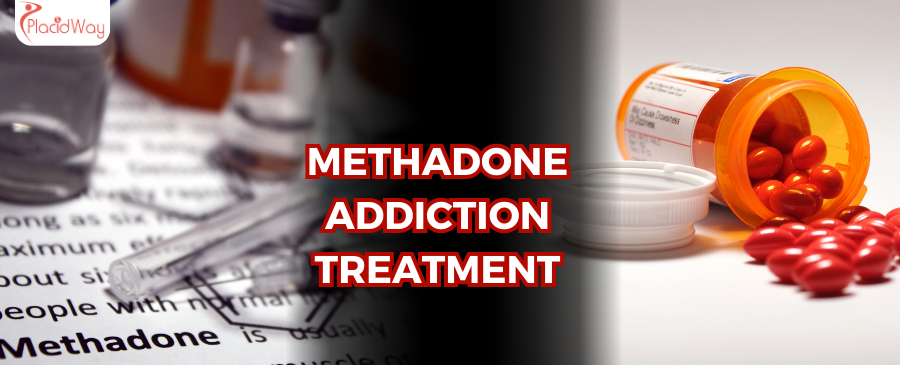
Methadone, a synthetic opioid, is widely used in medication-assisted treatment (MAT) for opioid addiction. While it plays a crucial role in helping individuals stabilize and recover from opioid dependence, Methadone itself carries the risk of addiction if not managed properly.
Methadone is a long-acting opioid used primarily to treat opioid addiction and manage chronic pain. It functions by alleviating withdrawal symptoms and cravings associated with opioid dependence, thus facilitating a more manageable and stable recovery process. Methadone works by interacting with the brain’s opioid receptors, helping to reduce the euphoric effects of other opioids while easing withdrawal symptoms. Despite its therapeutic benefits, Methadone has the potential for abuse and dependency, which necessitates careful monitoring and management during treatment.
|
Misuse of Prescription: Using Methadone in higher doses or more frequently than prescribed can lead to dependence and addiction. Recreational Use: Some individuals misuse Methadone for its sedative or euphoric effects, which can foster addiction. Increased Tolerance: Developing a tolerance to Methadone requires escalating doses to achieve the desired effects, increasing the risk of addiction. Chronic Pain Management: Long-term use for pain management can lead to physical dependence and addiction. Lack of Adherence: Non-compliance with prescribed treatment regimens can result in misuse and subsequent addiction. |
|
Physical Signs: Observable symptoms like drowsiness, constricted pupils, and slowed breathing that may signal misuse. Mental Health Issues: Problems such as depression, confusion, and impaired cognition that may be exacerbated by Methadone use. Cravings: Persistent and intense urges to use Methadone, often leading to compulsive drug-seeking behavior. Increased Dosage: Needing larger amounts of Methadone to achieve the same effects, indicating developing tolerance. Withdrawal Symptoms: Experiencing symptoms like sweating, nausea, muscle aches, and agitation when not using Methadone. Behavioral Changes: Notable changes in behavior, such as neglecting responsibilities, engaging in risky activities, and mood swings. |
Effective treatment for Methadone addiction often involves a combination of medication-assisted treatment (MAT) and behavioral therapies. A partial opioid agonist that helps manage withdrawal symptoms and reduce cravings, offering a safer alternative with a lower risk of abuse.
An opioid antagonist that blocks the effects of opioids and helps prevent relapse by reducing the drug’s rewarding effects. For those already on Methadone, a carefully managed tapering process can help reduce dependency while addressing underlying issues.
These medications are used to manage withdrawal symptoms, reduce cravings, and block the euphoric effects of opioids, supporting individuals in their recovery journey.
|
Effective Withdrawal Management: Medications used in MAT help manage withdrawal symptoms, making the detoxification process more tolerable. Reduced Cravings: Buprenorphine and other MAT options effectively decrease cravings for Methadone, minimizing relapse risks. Enhanced Safety: Treatment with MAT reduces the likelihood of overdose compared to continued Methadone use, improving overall safety. Improved Quality of Life: Successful treatment allows individuals to regain control over their lives, restore relationships, and improve overall well-being. Long-Term Support: A comprehensive approach, including counseling and behavioral therapies, offers sustained support and helps individuals maintain recovery. |
|
Prescription Opioid Users: Those who have become addicted to Methadone or other prescription opioids due to misuse or dependence. Individuals with High Tolerance: People who have developed a high tolerance to Methadone and require escalating doses. Patients with Chronic Pain: Those who have been using Methadone for chronic pain management and have developed a dependency. People with a History of Relapse: Individuals who have previously tried to quit Methadone but experienced relapse and require additional support. |
|
Methadone Addiction Treatment Centers and Doctors Worldwide |
|
|
Top Addiction Treatment Packages Worldwide |
|
|
Country |
Average Cost (USD) |
|
Costa Rica |
$7,500 - $15,500 |
|
Mexico |
$6,500 - $14,500 |
|
India |
$6,500 - $14,500 |
|
Cuba |
$6,000 - $13,000 |
|
Treatment Goals: Clearly discuss your treatment goals with your healthcare provider to ensure they align with your recovery objectives and expectations. Insurance Coverage: Verify your insurance coverage for Methadone addiction treatment, including any potential out-of-pocket expenses. Medical Evaluation: Undergo a thorough assessment to determine if Methadone addiction treatment is appropriate and to address any underlying health conditions. Support System: Ensure you have a robust support system, including family, friends, or support groups, to assist you throughout your recovery journey. Treatment Plan: Understand the details of your treatment plan, including medication regimens, therapy options, and lifestyle changes that may be recommended. Expectations: Be realistic about the time required to see improvements and the challenges that may arise during treatment. Recovery is a gradual process that requires patience and commitment. Confidentiality: Confirm that the treatment facility maintains strict confidentiality and protects your privacy, providing a safe and secure environment for recovery. |
Let PlacidWay guide you through the process and help you find the right treatment tailored to your unique needs. Whenever someone you know is struggling with Methadone addiction, seeking professional help is a critical step toward recovery. PlacidWay Medical Tourism can connect you with top Methadone addiction treatment centers and specialists worldwide. Book a consultation today to explore your treatment options and take the first step toward a healthier, addiction-free life.